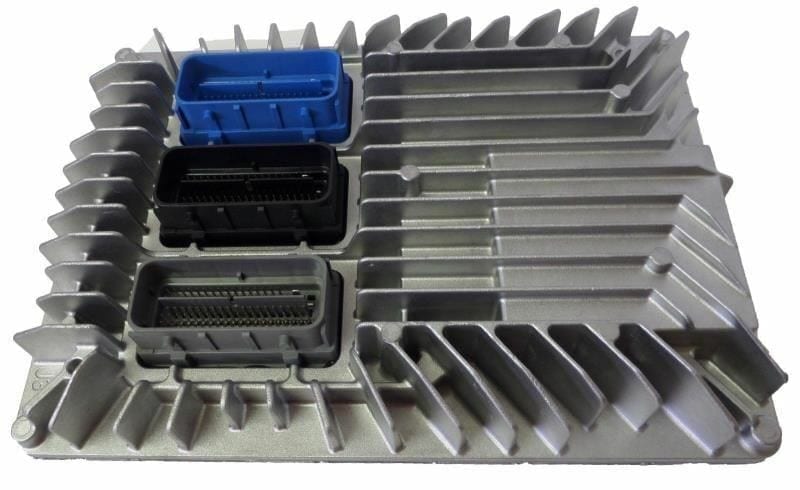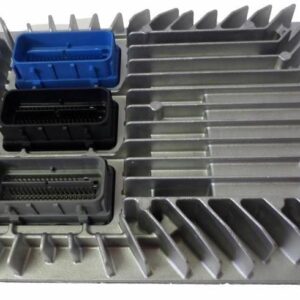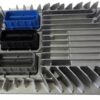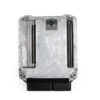Restore Your Vehicle’s Performance and Reliability
Is your Buick, Chevy, or Cadillac suffering from frustrating, hard-to-diagnose issues like stalling, erratic shifting, or a persistent Check Engine Light? The Engine Control Module (ECM) is the brain of your vehicle’s powertrain, and when it fails, it can cause a cascade of problems that are often misdiagnosed. This isn’t just an inconvenience; it’s a matter of reliability. In my 20+ years in the shop, I’ve seen drivers spend hundreds on unnecessary sensor replacements when the core issue was a faulty ECM all along. This replacement 2010 Allure Engine Control Module is the definitive solution, arriving at your door pre-programmed and ready for installation.
We take the guesswork and high dealership costs out of the equation. Simply provide your vehicle’s VIN during checkout, and our technicians will flash this module with the latest, most stable software updates directly from GM. This ensures perfect communication between the ECM and all other vehicle systems, restoring the smooth performance and fuel efficiency you expect. It’s a direct-fit replacement for a wide range of GM vehicles, designed to solve the problem correctly the first time.
From the Diagnostic Bay
I remember a 2011 Chevy Equinox that came into my shop with a maddeningly intermittent no-start condition. The owner had already replaced the battery and starter. We checked fuel pressure and spark, and everything seemed fine. It would start perfectly ten times in a row, then refuse on the eleventh try. There were no hard codes, just a few pending communication errors (U-codes) that would come and go. After two days of tracing wires and testing grounds, we decided to monitor the ECM’s internal voltage during startup. We finally caught it: a momentary voltage drop inside the module itself, just enough to prevent the fuel pump relay from activating. We installed a VIN-programmed ECM just like this one, and the problem was solved instantly. It’s a classic example of how a failing 2010 Allure Engine Control Module can create symptoms that lead you down the wrong diagnostic path.
Common Signs of a Failing ECM
- ✔ Check Engine Light is on with internal processor codes (e.g., P0601, P0606) or communication codes (U0100).
- ✔ The engine cranks but refuses to start for no apparent reason.
- ✔ Unexplained drops in fuel economy.
- ✔ The vehicle stalls unexpectedly while driving or at idle.
- ✔ Harsh or erratic automatic transmission shifting.
- ✔ Noticeable loss of engine power and poor acceleration.
- ✔ Communication issues with diagnostic scan tools.
A Straightforward Guide to Installation
- ✔ Safety First: Disconnect the negative terminal from your vehicle’s battery and wait at least 15 minutes to allow all system capacitors to discharge.
- ✔ Locate the ECM: On most compatible vehicles, the ECM is found in the engine compartment, often on the driver’s side (LH) near the air filter box or firewall. Refer to your vehicle’s service manual for the exact location.
- ✔ Disconnect the Connectors: Carefully release the locking tabs on the wiring harness connectors and pull them straight out from the module. Do not force them. Inspect the pins for any corrosion or damage.
- ✔ Remove the Old Module: Unbolt the old ECM from its mounting bracket. There are typically a few 10mm bolts holding it in place.
- ✔ Install the New Module: Mount your new, pre-programmed ECM onto the bracket and secure the bolts.
- ✔ Reconnect Everything: Firmly plug the wiring harnesses back into the new module until they click into place. Reconnect the negative battery terminal.
- ✔ Perform Relearn (If Necessary): While this module is programmed to your VIN, some vehicles require a brief security or crank position sensor relearn procedure. This can often be done without special tools. Turn the key to the ‘ON’ position for 10-15 minutes, then turn it off, and then start the vehicle. Consult your service manual for any specific procedures for your model.
Verified Vehicle Compatibility
This module is a direct replacement for part numbers 12616889, 12630908, 12637106, 12642665, 12650256, and 12651993. It is guaranteed to fit the following vehicles (please verify your specific engine and options):
- Buick Allure: 2010 (2.4L, 3.0L)
- Buick LaCrosse: 2010-2011 (2.4L, 3.0L)
- Buick Regal: 2011
- Cadillac CTS: 2010-2012 (3.0L, 3.6L)
- Cadillac SRX: 2010-2011 (3.0L)
- Chevrolet Camaro: 2012 (3.6L)
- Chevrolet Captiva Sport: 2012
- Chevrolet Equinox: 2010-2011
- Chevrolet Impala: 2012
- Chevrolet Orlando: 2012-2013
- GMC Terrain: 2010-2011
- Saab 9-5: 2010-2011 (2.0L)
How do I provide my VIN?
After you complete your purchase, you will receive an email with instructions. Simply reply to that email with your 17-digit Vehicle Identification Number (VIN). We cannot program and ship your module without it.
Is this a simple plug-and-play installation?
Yes, for the vast majority of vehicles. Because we program the module to your specific VIN, it eliminates the need for a trip to the dealer. In some rare cases, a simple key relearn or security relearn procedure may be required, which can typically be done in your driveway.
Will this fix my car’s specific problem?
This ECM is a direct solution for failures within the module itself, which cause the symptoms listed above. While it solves many common issues, it’s crucial to ensure your vehicle has been properly diagnosed. This part will not fix issues related to faulty wiring, sensors, or other mechanical components.
Where is the part number located on my old ECM?
The part number is printed on a sticker on the case of your original Engine Control Module. You can match it against the compatible part numbers listed here to confirm fitment.
Do I need to send my old ECM back?
No core charge is required for this module. You can keep your old part.



